EVGA GQ Series 750W PSU Review
EVGA teamed up with FSP once again to produce the new GQ line, which is one step below the highly popular G2 series. The four GQ PSUs feature 80 Plus Gold efficiency and semi-modular cabling, promising quiet operation.
Why you can trust Tom's Hardware
Packaging, Contents, Exterior And Cabling
Packaging
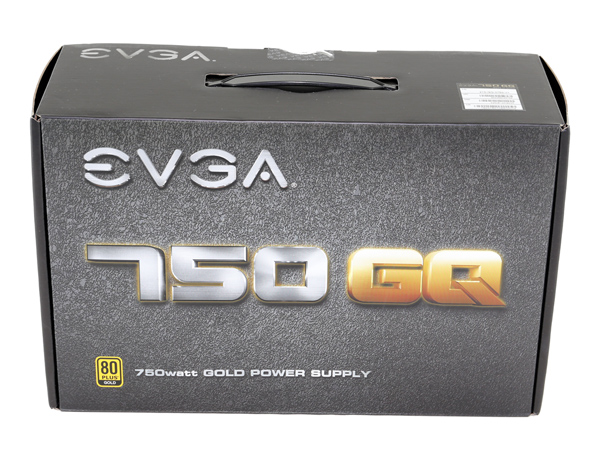

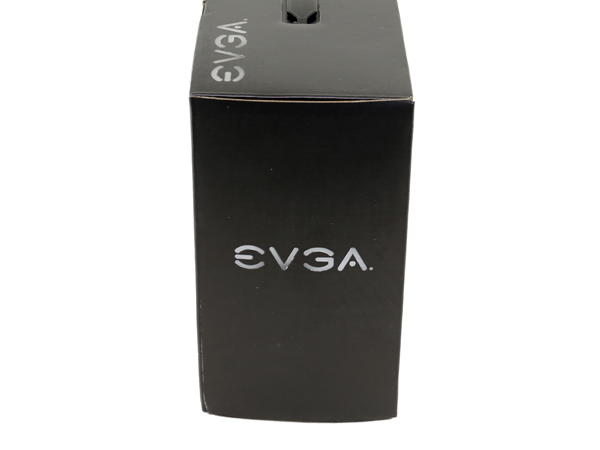
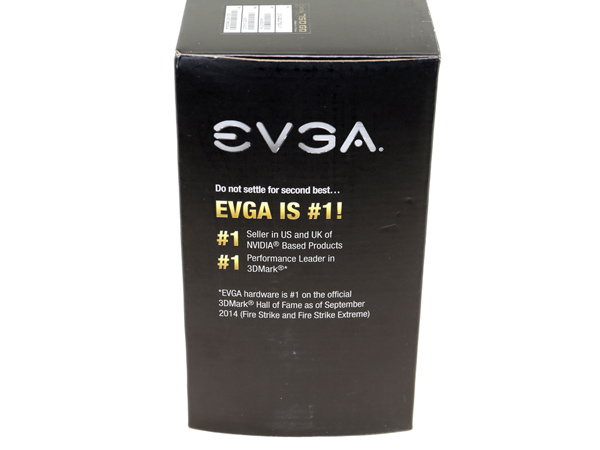
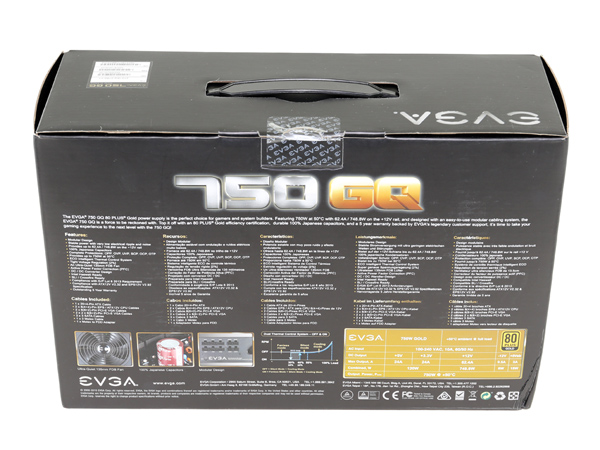
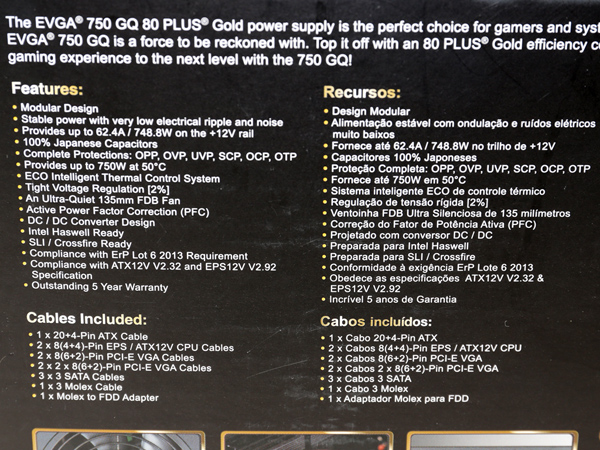
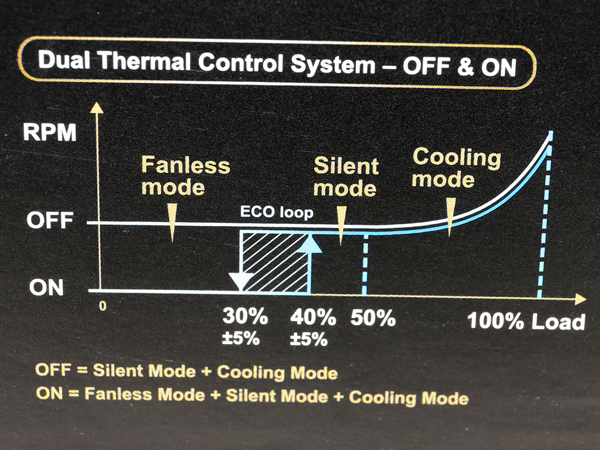
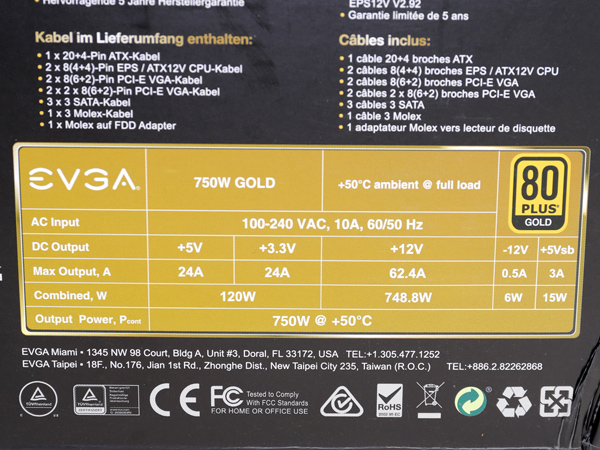
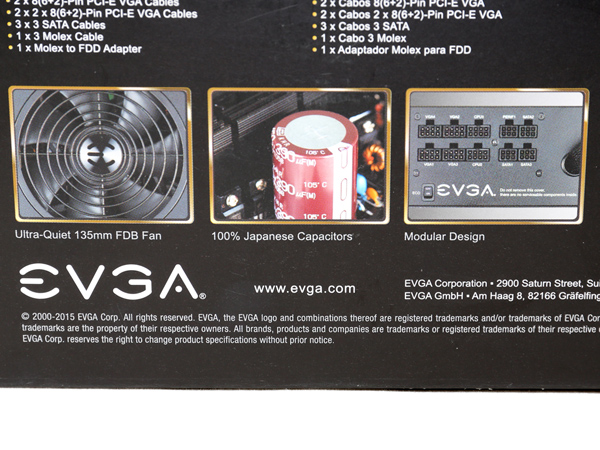
The box features EVGA's familiar graphical design. On the front, the model number is written in a huge font, while the 80 Plus Gold badge is posted in the bottom-left corner. The badge is so small that it appears EVGA was almoashamed of it. But Gold efficiency is still considered a pretty high certification, although it's classified third behind Platinum and Titanium. On the back of the packaging, EVGA provides a photograph of the unit's internals (and more specifically, a close-up photo of the bulk cap). Funnily, the cap in the photo is by Nippon Chemi-Con, while our sample employs an even higher-quality Rubycon bulk cap. You'll also find a long feature list along with a smaller list of provided cables and connectors. Finally, the power specifications table is shown in the bottom-right corner. Right below it is a list of various certifications, including the CE one, which means the 750 GQ meets the Electromagnetic Compatibility (EMC) Directive's requirements.
Contents
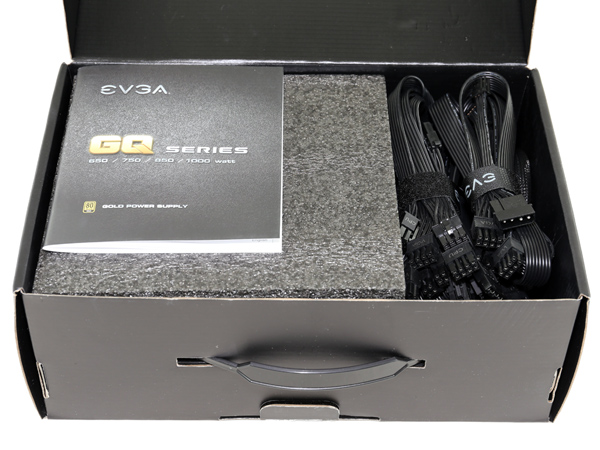
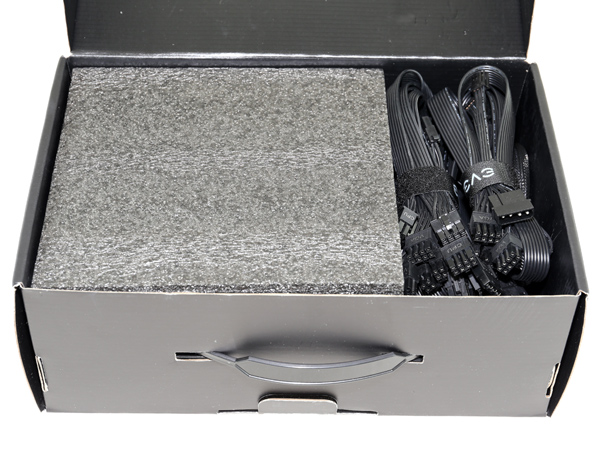
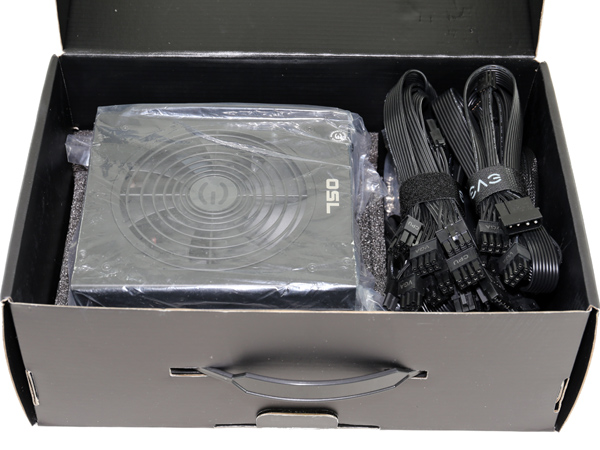
The PSU is sufficiently protected inside of its box. It's also wrapped in a plastic bag to avoid scratches and fingerprints. Unfortunately, EVGA doesn't store the modular cables in a reusable pouch, probably because the company wanted to minimize costs as much as possible.
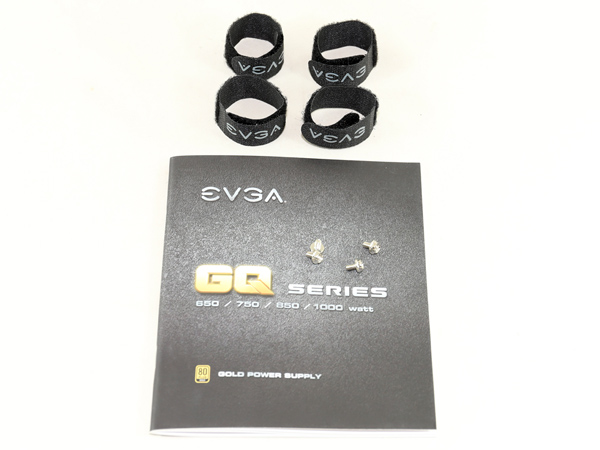
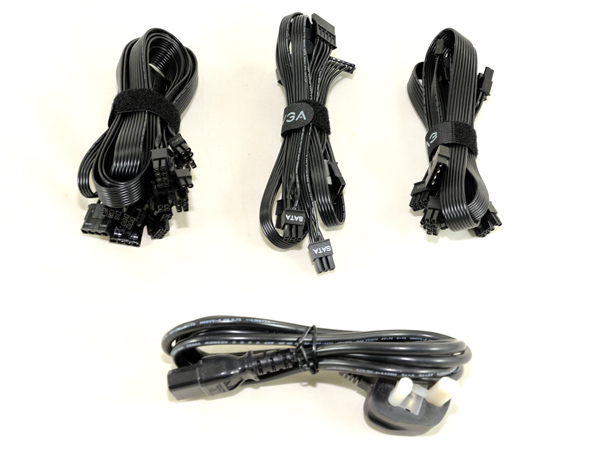
The bundle is uninspiring. It includes basic stuff like a set of screws, a user's manual, an AC power cord and four Velcro straps (the only real "extra" you get).
Exterior
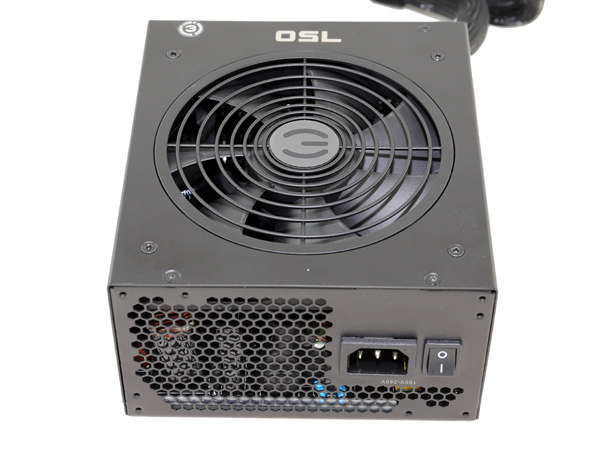
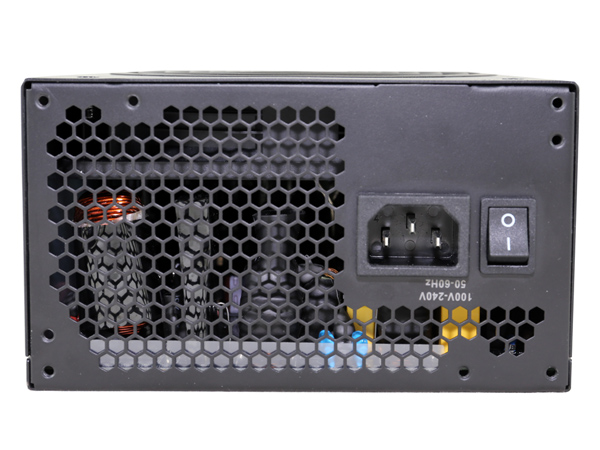
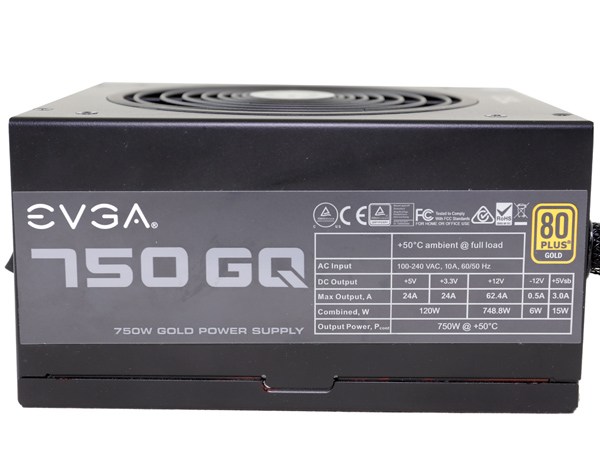
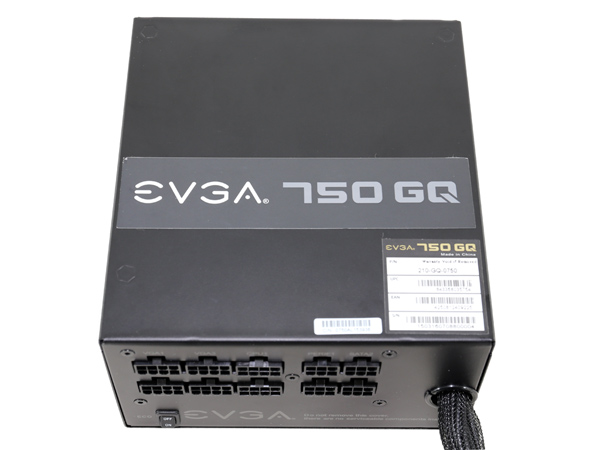
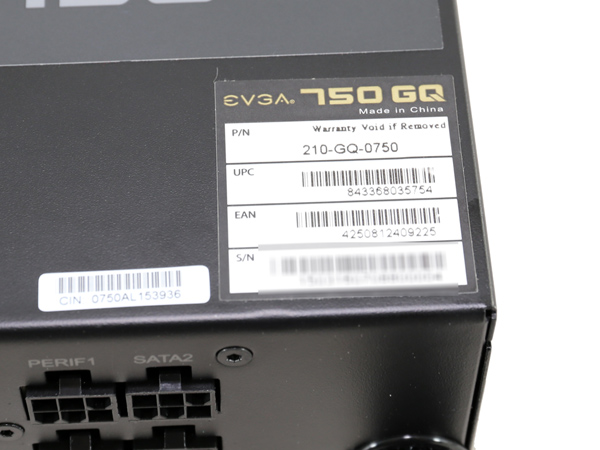
The design is completely different from EVGA's higher-end units, easily distinguishing the GQ models from their G2 counterparts. Overall, the 750 GQ is very plain and doesn't offer anything new aesthetically. The finish is of good quality, but the stickers on the sides of our sample weren't installed correctly. FSP doesn't seem to pay attention to these details, but we certainly do.
The power switch is installed next to the AC receptacle on the front, while on the bottom a small sticker depicts the serial and part numbers.
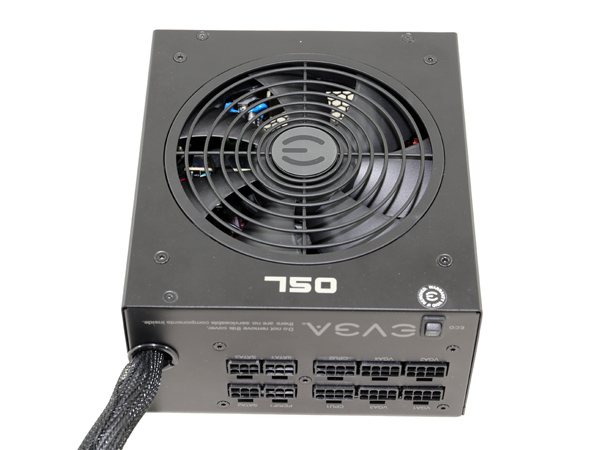
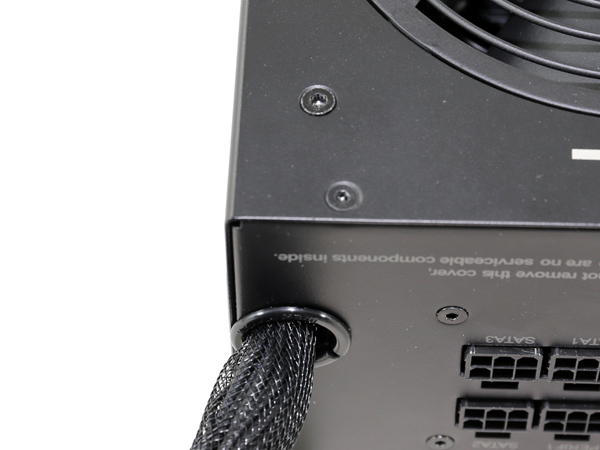
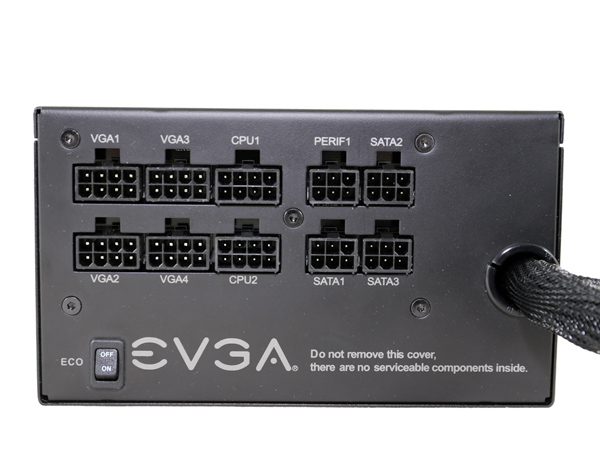
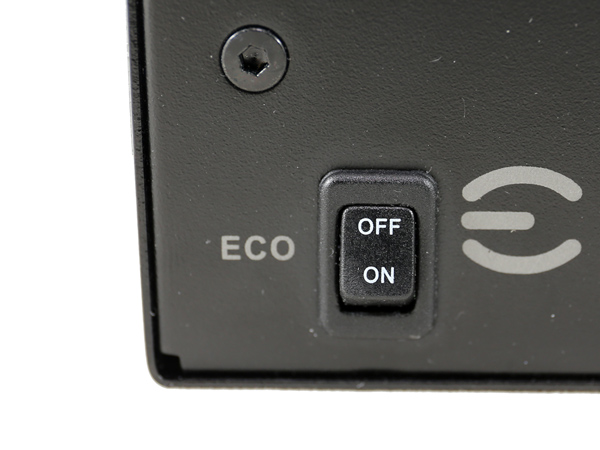
The modular panel on the back has a sextet of eight-pin sockets for the EPS and PCIe cables and four six-pin sockets for the peripheral cables. An Eco switch is installed on this side as well. More specifically, it's in the bottom-left corner with the PSU's fan facing upwards.
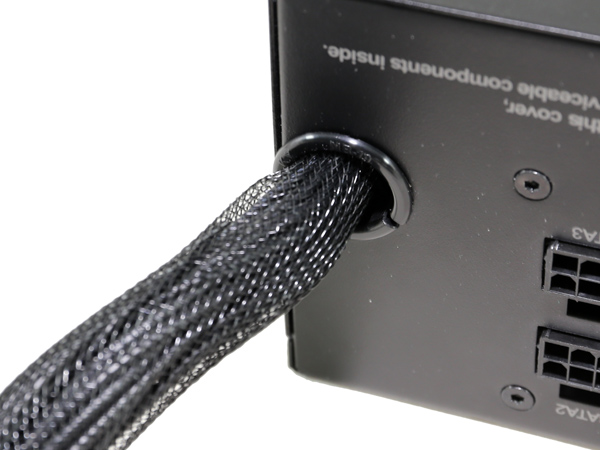
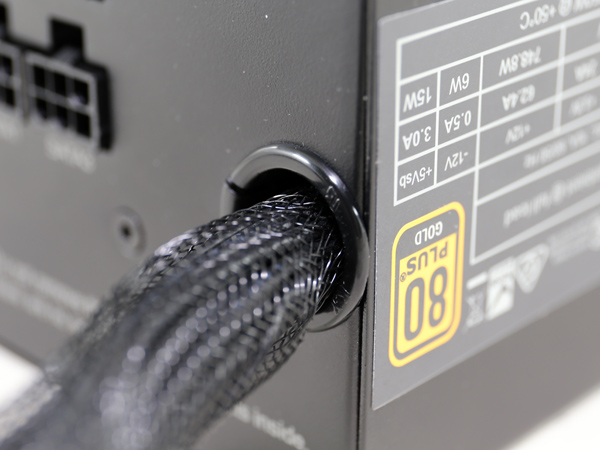
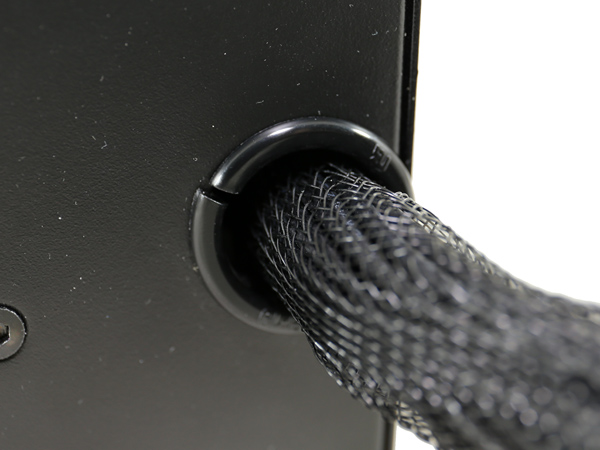
There is a plastic grommet around the cable exit hole that protects the native ATX cable from the chassis' edges. As you can see from the photos, its sleeving goes all the way back into the PSU's internals.
Get Tom's Hardware's best news and in-depth reviews, straight to your inbox.
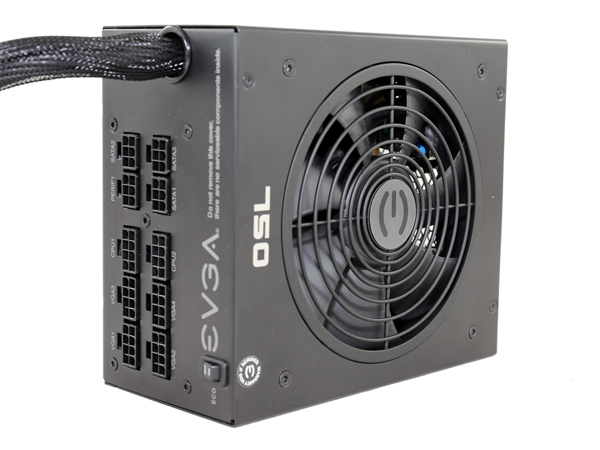
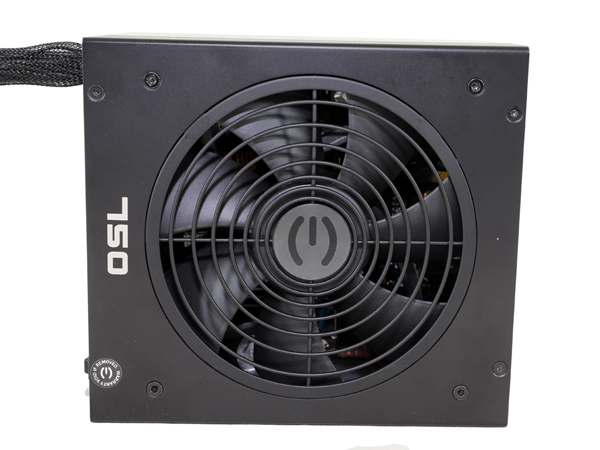
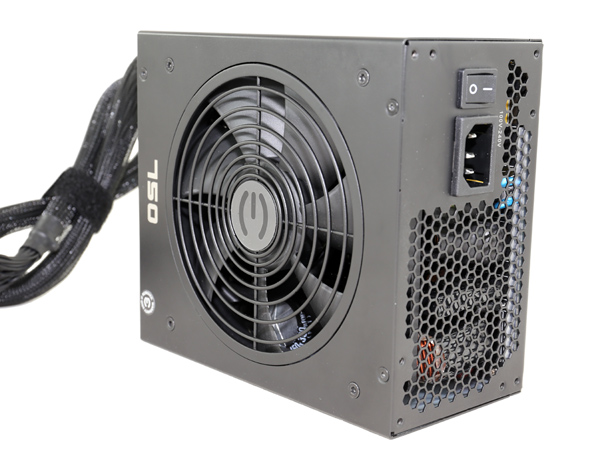
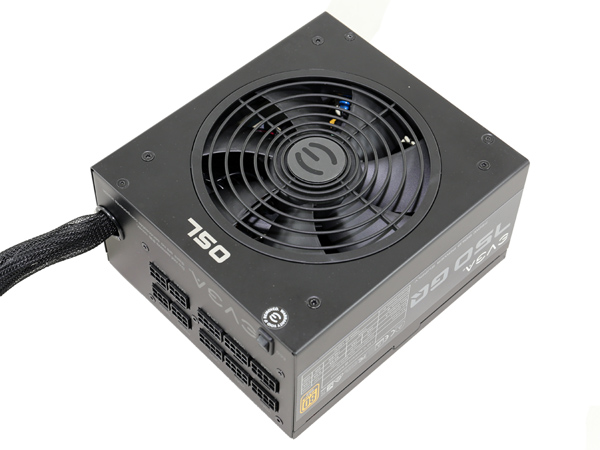
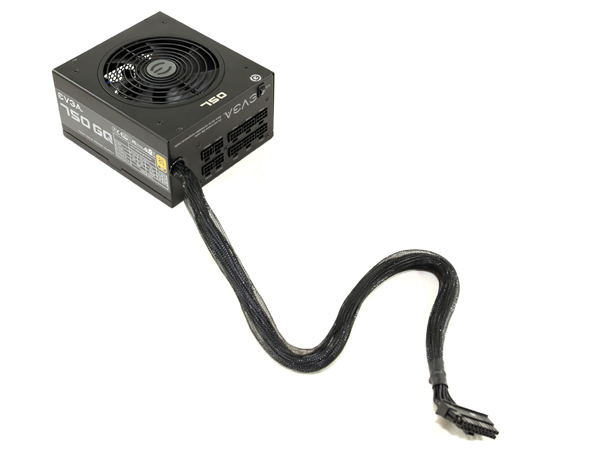
The 750 GQ's dimensions are compact enough to allow installation even in smaller enclosures. In addition, the fixed cable is quite long, so you won't run into compatibility issues with big cases either.
Cabling
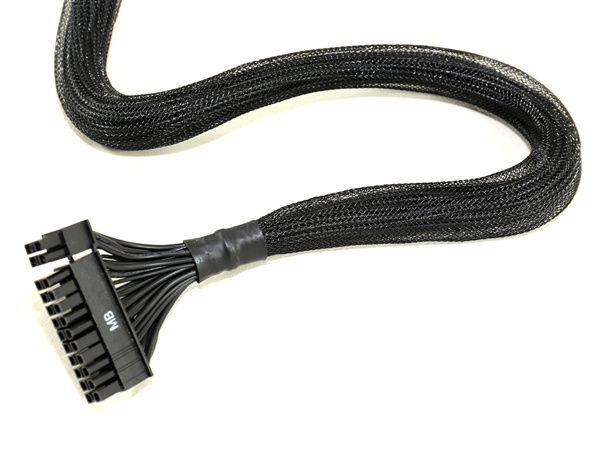
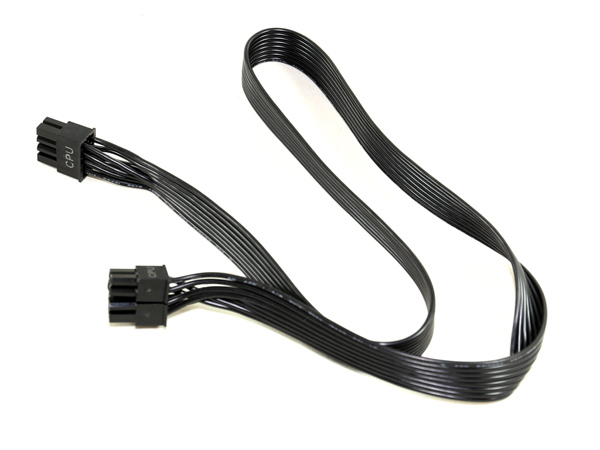
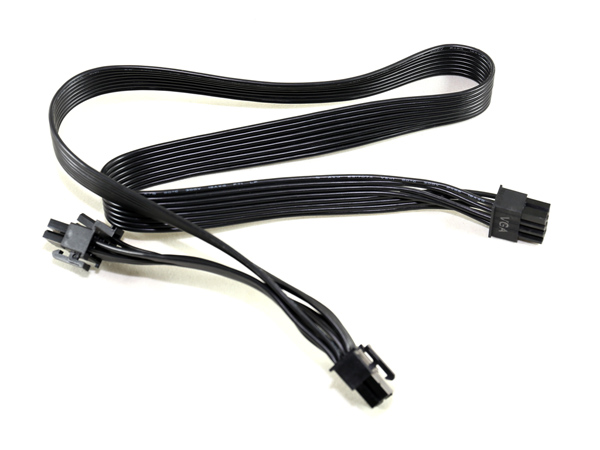
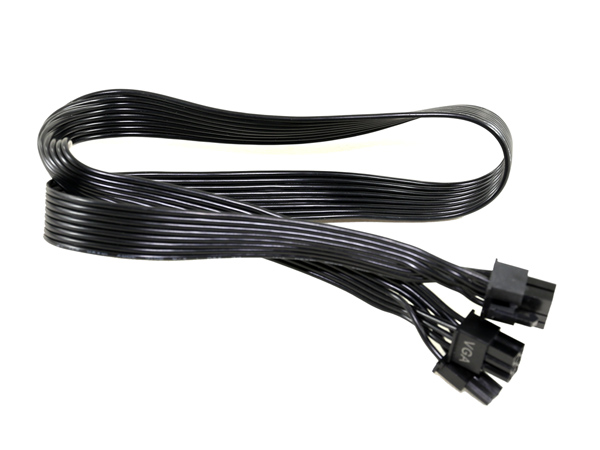
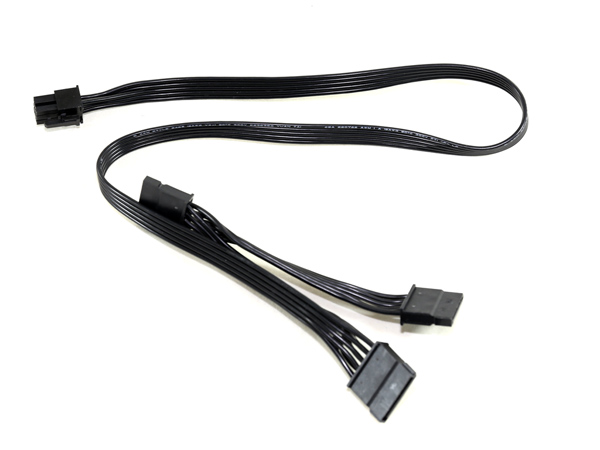
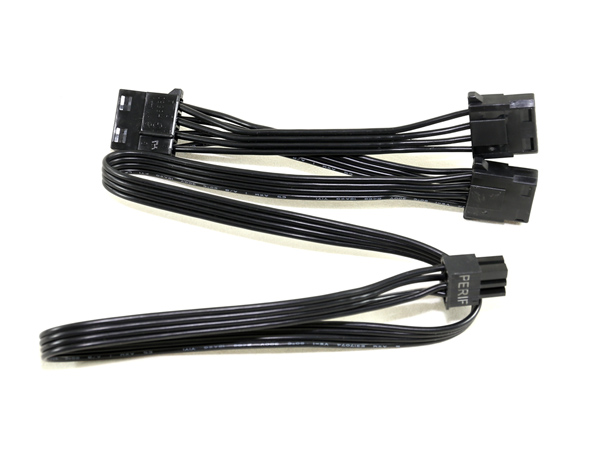
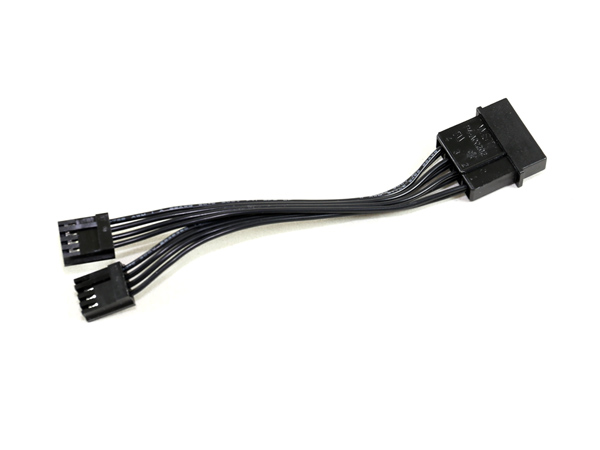
All cables are stealth, and the modular ones are also flat. Cable quality is good overall for a PSU in this price category. It might be worth noting that FSP doesn't use any extra filtering capacitors on the ATX cable.
Current page: Packaging, Contents, Exterior And Cabling
Prev Page EVGA 750 GQ Power Supply Review Next Page A Look Inside And Component Analysis
Aris Mpitziopoulos is a contributing editor at Tom's Hardware, covering PSUs.
-
10tacle Huh. Johnny Guru gave two variants of this PSU series recommended ratings back in Nov. & Dec (650, 850). I saw a 650W on sale at NewEgg last December for $50(US) after rebate and almost recommended it to a friend, but I didn't as I hadn't seen a JohnnyGuru review on the GQ series yet (they gave it a 9.4). They also gave the 850W version a 9.2 rating back in November.Reply
Not sure what happened with this 750W example, but it sounds more like what one would expect with a Corsair CX750 example. Definitely not the same results that Johnny Guru got with two different GQ variants. -
Aris_Mp The lower capacity GQ models use a different platform from the higher capacity ones (850W and more).Reply
The design of the 650 and 750 GQ models doesn't allow for better performance, especially in ripple performance. -
dstarr3 Eh, I'd stick with the G2 series. That's a lot more quality for only a small price premium. And really, the PSU is probably the worst place to cut costs in a system build.Reply -
basroil Oh god, another PoS EVGA unit that shares a similar name to the spectacular G2... I can see a flood of "my graphics card has coil whine", "my computer constantly crashes", and "my headphones have static/popping (only when playing games)" posts in the forum soon...Reply -
joz ReplyEh, I'd stick with the G2 series. That's a lot more quality for only a small price premium. And really, the PSU is probably the worst place to cut costs in a system build.
Agreed. G2 550 and 650's are great. And the P2 750+ if you need that sort of power are great too. But these...."craptacularripplefail," units EVGA is tossing out is really hurting their image. I understand market catering and such, but they need to rethink their strategy. They aren't going to win any price/perf races while Corsair can continue to throw their shitty cx units out the window to customers. And EVGA I hold to higher standards then Corsair, so its kind of a shame to see the performance of these lower quality power supplies. -
Dark Lord of Tech I would take the EVGA G2 , P2 , T2 over any other POWER SUPPLIES including Seasonic.Reply -
jonnyguru ReplyAgreed. G2 550 and 650's are great. And the P2 750+ if you need that sort of power are great too. But these...."craptacularripplefail," units EVGA is tossing out is really hurting their image. I understand market catering and such, but they need to rethink their strategy. They aren't going to win any price/perf races while Corsair can continue to throw their shitty cx units out the window to customers. And EVGA I hold to higher standards then Corsair, so its kind of a shame to see the performance of these lower quality power supplies.
Unfortunately, you can't be too profitable selling only niche higher end product. At some point, if you want the board of directors to let you continue putting out power supplies, you have to put something out that can do volume. The B2 Series, The GQ Series, etc. Don't like them? Don't buy them. Is it hurting their reputation? No. Not as long as higher end units like the G2, P2, etc. continue to be solid. But if they start to slip for whatever reason, then you can say their reputation is in jeoprady. Seriously. Hardly anybody judges the Corvette because of the Chevy Spark (well... maybe some Ford fanboys, but still). -
Dark Lord of Tech I like the GQ's and recommend them , also love the Corsair RMx series and recommend those too.Reply -
PureBlackFire ReplyHuh. Johnny Guru gave two variants of this PSU series recommended ratings back in Nov. & Dec (650, 850). I saw a 650W on sale at NewEgg last December for $50(US) after rebate and almost recommended it to a friend, but I didn't as I hadn't seen a JohnnyGuru review on the GQ series yet (they gave it a 9.4). They also gave the 850W version a 9.2 rating back in November.
Not sure what happened with this 750W example, but it sounds more like what one would expect with a Corsair CX750 example. Definitely not the same results that Johnny Guru got with two different GQ variants.
well, this is hardly the first time an FSP platform performed reasonably well at 650 watts and sucked at 750. sure it won't be the last either. as for the 850, like Aris said, based on a different (better) design.
-
10tacle Reply17373323 said:well, this is hardly the first time an FSP platform performed reasonably well at 650 watts and sucked at 750. sure it won't be the last either. as for the 850, like Aris said, based on a different (better) design.
That's just not right. A certain series should be of the same quality across the series offerings. There's a reason people shop for different series for their needs (budget vs. quality, etc.). Hell it's complicated enough already just trying to keep up with each OEM series line offerings and their quality tiers. I mean we all know the general quality difference between Corsair's CX line and EVGA's G2 line.